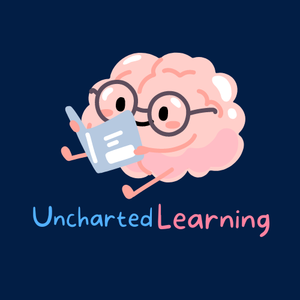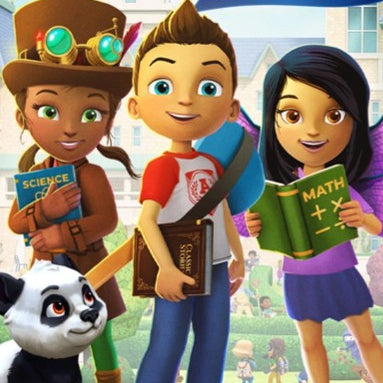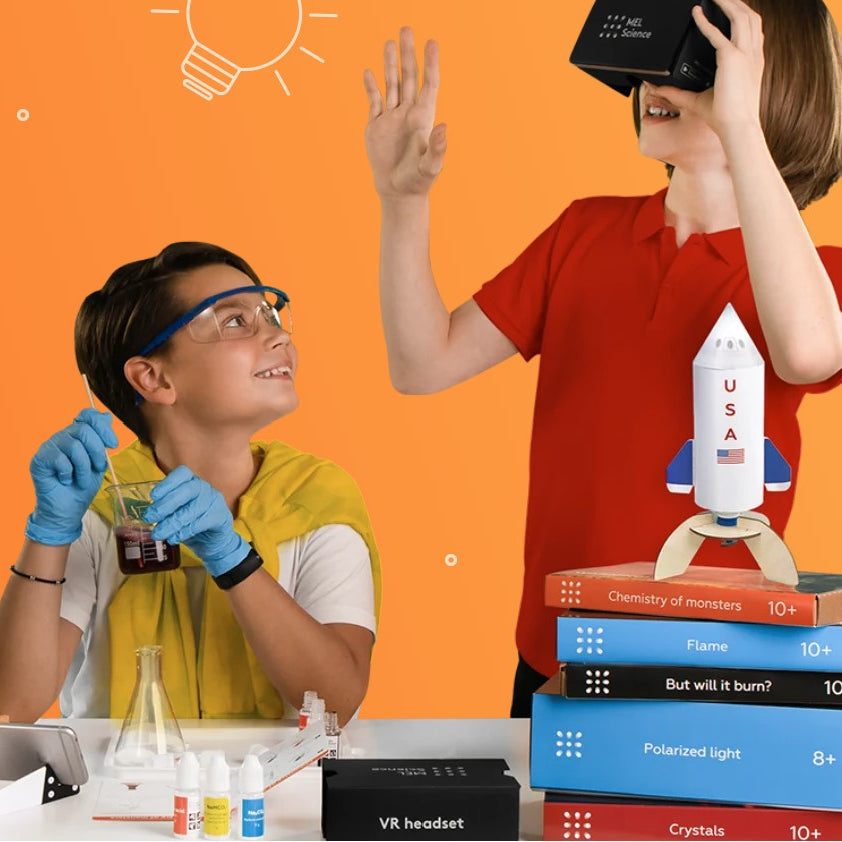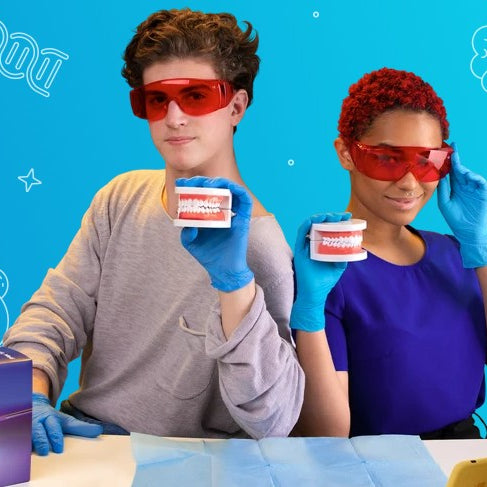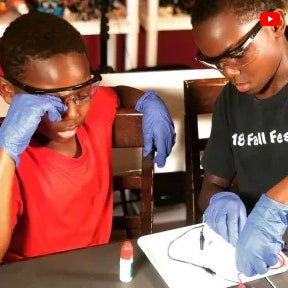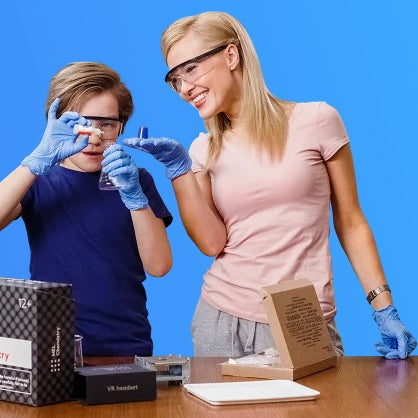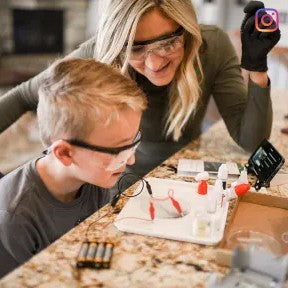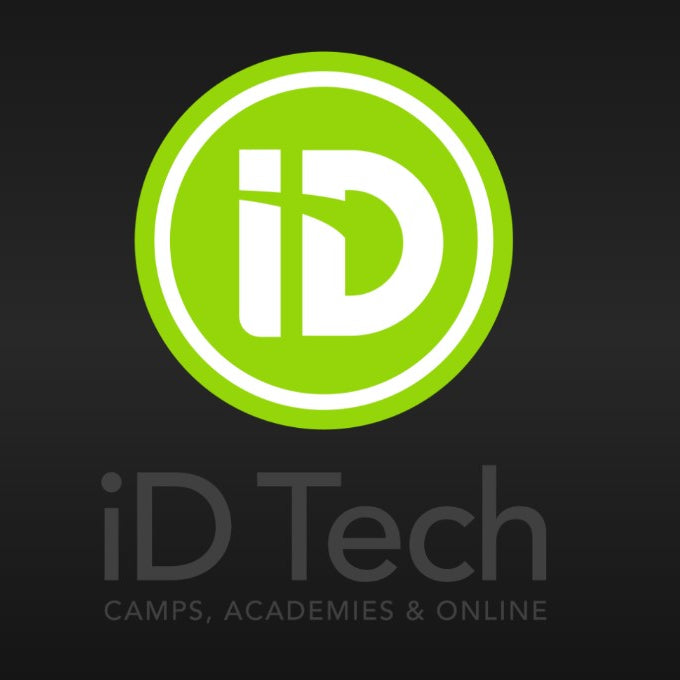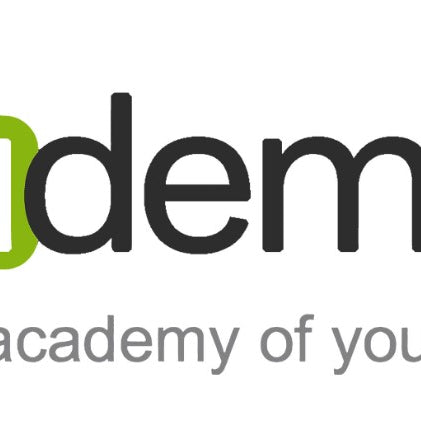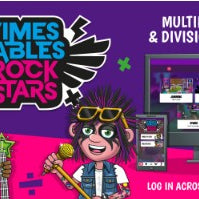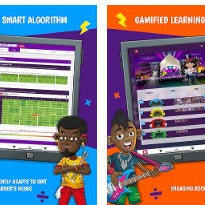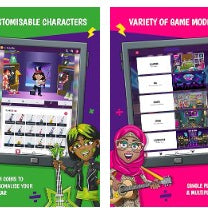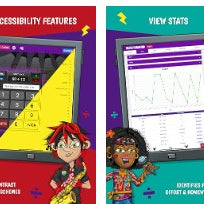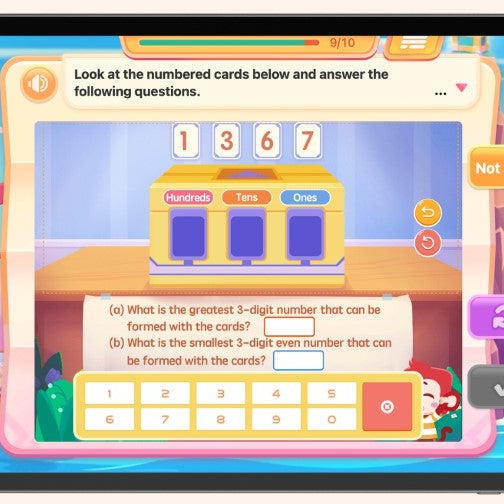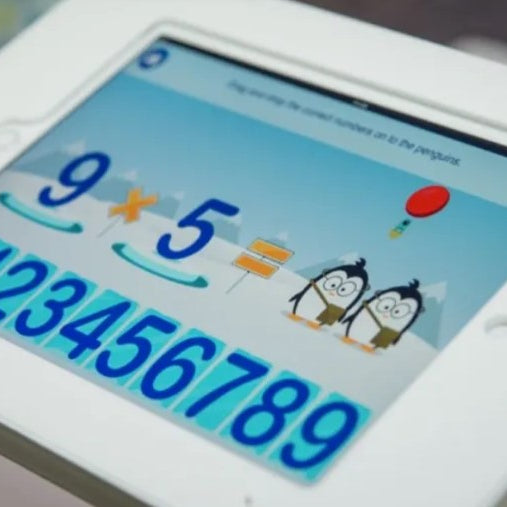Homeschooling doesn't take a summer vacation, but that doesn't mean your summer homeschool has to feel like "school." The secret to an engaging and sanity-saving approach lies in involving your children in the planning. By asking the right questions, you transform learning into an exciting adventure rather than a tedious chore. This not only sparks their natural curiosity but also provides you with a treasure trove of ideas to combat boredom (usually right after breakfast!). This summer, you can seamlessly integrate outdoor adventures, hands-on activities, learning games, and field trips, keeping the learning light and enjoyable. And with tools like Google Gemini, you can ask even more targeted questions to unlock incredible learning opportunities. You'll sneak in all the reading, writing, math, and essential life skills without the dreaded eye rolls.
Why This Approach Helps You (and Saves Your Sanity)
 Let’s face it, the idea of "summer slide" is a real concern for many homeschooling parents. We want our children to continue growing and learning, but we also cherish the relaxed pace of summer. The beauty of this question-based approach, especially when enhanced with AI like Google Gemini, is that it leverages your child's intrinsic motivation. When they feel a sense of ownership over their learning, they are far more likely to engage deeply and retain information.
Let’s face it, the idea of "summer slide" is a real concern for many homeschooling parents. We want our children to continue growing and learning, but we also cherish the relaxed pace of summer. The beauty of this question-based approach, especially when enhanced with AI like Google Gemini, is that it leverages your child's intrinsic motivation. When they feel a sense of ownership over their learning, they are far more likely to engage deeply and retain information.
Imagine your child proposing to build a complex contraption. You might initially feel overwhelmed. But what if you could turn to Google Gemini and ask: "What are some simple machines a child can build using household items?" or "What are age-appropriate engineering projects for a 10-year-old?" Gemini can quickly provide ideas, material lists, and even step-by-step instructions, transforming a daunting task into an exciting, achievable project.
This method also saves your sanity because it reduces the pressure on you to constantly generate new ideas. Your children become active participants in their educational journey, providing the raw material for countless learning experiences. It shifts the dynamic from you being the sole educator to you being a facilitator, a guide, and a co-learner. This collaborative spirit not only strengthens your bond but also models crucial life skills like initiative, problem-solving, and self-direction.
 Furthermore, integrating real-world activities means learning isn't confined to textbooks. When you're baking together, you're doing math (measuring), chemistry (reactions), and reading (following recipes). When you're exploring a local park, you're engaging in science (ecology), physical education, and perhaps even art (sketching nature). This natural, organic learning is often far more impactful and memorable than traditional rote memorization.
Furthermore, integrating real-world activities means learning isn't confined to textbooks. When you're baking together, you're doing math (measuring), chemistry (reactions), and reading (following recipes). When you're exploring a local park, you're engaging in science (ecology), physical education, and perhaps even art (sketching nature). This natural, organic learning is often far more impactful and memorable than traditional rote memorization.
20 Questions to Ask Your Kids (That Turn Into Summer Projects):
These questions are designed to be open-ended, sparking imagination and leading to hands-on, interest-led projects. Remember, the goal isn't to get a "right" answer, but to unearth their passions and curiosities.
-
What’s one thing you’ve always wanted to build or make?
- This could be anything from a LEGO masterpiece to a cardboard fort, a birdhouse, or even a functional robot.
- How Google Gemini can help: If your child says "a robot," you can ask Gemini: "What are simple robot kits for kids aged 8-12?" or "What are basic principles of robotics explained simply?" If they want to build a fort, ask: "What are creative fort ideas for a backyard using blankets and chairs?"
-
If you could create your own theme park ride, what would it be?
- This question encourages creativity, design thinking, and even basic physics. They might sketch it, describe its mechanics, or even build a miniature model.
- How Google Gemini can help: "How do roller coasters work?" or "What are different types of theme park rides?" Gemini can provide background information to fuel their designs.
-
What’s a food you want to learn how to cook or bake?
- This is a fantastic way to incorporate practical life skills, math (measuring), reading (recipes), and science (chemical reactions in baking).
- How Google Gemini can help: "Easy recipes for kids to bake cookies" or "Simple dinner recipes a 10-year-old can cook." You can also ask for historical facts about certain foods.
-
If you were a scientist, what would you study and why?
- This opens doors to exploring biology, chemistry, physics, astronomy, geology, and more.
- How Google Gemini can help: "What does a marine biologist do?" or "Experiments for kids to learn about gravity." Gemini can provide career insights and simple scientific explanations.
-
What’s one animal you want to learn everything about?
- This leads to research projects, trips to the zoo or aquarium, documentaries, and even art projects.
- How Google Gemini can help: "Interesting facts about penguins for kids" or "Where do pandas live?" You can also ask for animal classifications, habitats, and food chains.
-
Want to invent your own board game? What would it be called?
- This involves critical thinking, rule-making, design, strategy, and even artistic skills for creating the board and pieces.
- How Google Gemini can help: "How to design a simple board game?" or "Ideas for board game themes." Gemini can help them brainstorm mechanics and unique concepts.
-
If you could be a character in a movie, who would you be—and can we make a costume?
- This combines imaginative play with practical skills like sewing, crafting, and even historical research if the character is from a specific era.
- How Google Gemini can help: "DIY superhero costume ideas" or "What materials are needed to make a knight's armor?"
-
Can you create a scavenger hunt for the park or backyard?
- This encourages observation skills, map reading (if they draw one), writing clues, and problem-solving.
- How Google Gemini can help: "Scavenger hunt clues for nature items" or "How to make a treasure map."
-
What’s something you'd like to sell at a pretend (or real!) lemonade stand or market?
- This introduces basic economics, marketing, math (counting change), and social skills.
- How Google Gemini can help: "Tips for a successful lemonade stand" or "What are good homemade items for kids to sell?"
-
Want to start a family YouTube show or podcast? What should we talk about?
- This can develop public speaking, scriptwriting, editing, and research skills, depending on the topic.
- How Google Gemini can help: "How to start a kids' podcast?" or "Good topics for a family YouTube channel." You can even ask Gemini to help brainstorm episode ideas.
-
What’s a country you want to “visit”? Want to cook their food and learn a few words?
- A fantastic way to explore geography, history, culture, and culinary arts.
- How Google Gemini can help: "Easy French recipes for kids" or "Common phrases in Japanese for beginners." You can also ask about cultural traditions, famous landmarks, and historical events.
-
Can you design and build a mini-golf hole in the backyard?
- Combines engineering, physics, creativity, and problem-solving.
- How Google Gemini can help: "Simple mini-golf hole designs using household items" or "Basic physics of golf."
-
What’s one big question you have about space, the ocean, or how something works?
- This taps into their innate curiosity and can lead to deep dives into scientific topics.
- How Google Gemini can help: "How do black holes work explained for kids?" or "What lives in the deepest part of the ocean?" Gemini is excellent for providing accessible explanations to complex questions.
-
Want to make a fairy house or gnome village somewhere outside?
- Encourages creativity, fine motor skills, nature appreciation, and imaginative play.
- How Google Gemini can help: "Materials for making a natural fairy house" or "Stories about gnomes and fairies."
-
What’s a mystery we can solve together—real or made up?
- Develops critical thinking, deduction, observation, and research skills. You could even read a mystery novel together.
- How Google Gemini can help: "Simple detective games for kids" or "Famous unsolved mysteries explained for children."
-
If you could teach a class to other kids, what would you teach?
- This builds confidence, public speaking skills, and requires them to organize their knowledge on a topic.
- How Google Gemini can help: "How to teach a simple art class to preschoolers" or "Ideas for a short science lesson for friends."
-
Can we write a short story or comic together? Who’s the main character?
- Fosters creativity, writing skills, plot development, and character creation.
- How Google Gemini can help: "Story ideas for kids' comics" or "How to write a fantasy story outline." Gemini can even help brainstorm character names, settings, and plot twists.
-
Want to be a junior ranger or zoo explorer this summer?
- Connects them with nature, conservation, and local resources like parks and zoos. Many parks offer programs for kids.
- How Google Gemini can help: "Junior Ranger programs near me" or "Activities for exploring a local park."
-
Can you plan a full day of fun for our family (with a budget)?
- A practical life skill that involves planning, budgeting, decision-making, and understanding value.
- How Google Gemini can help: "Fun family activities on a budget in [your city]" or "How to create a simple family budget."
-
What challenge should we do this summer—fitness, kindness, or creativity?
- Encourages goal-setting, perseverance, and focuses on character development or specific skill-building.
- How Google Gemini can help: "Simple fitness challenges for families" or "Random acts of kindness ideas for kids." Gemini can provide inspiration for all kinds of challenges.
Leveraging Google Gemini for Enhanced Learning
 The true power of this question-based approach is amplified by tools like Google Gemini. Think of Gemini as your personalized, always-on research assistant and brainstorming partner. When your child asks a question or proposes a project, you don't need to know all the answers immediately. Instead, you can turn to Gemini and model how to find information, explore related concepts, and even troubleshoot problems.
The true power of this question-based approach is amplified by tools like Google Gemini. Think of Gemini as your personalized, always-on research assistant and brainstorming partner. When your child asks a question or proposes a project, you don't need to know all the answers immediately. Instead, you can turn to Gemini and model how to find information, explore related concepts, and even troubleshoot problems.
Here’s how Google Gemini can be a game-changer for your summer homeschool:
- Instant Information Retrieval: Your child wants to know "How do airplanes fly?" Instead of a quick, simplified answer, you can ask Gemini for an "explanation of aerodynamics for a 7-year-old." Gemini can break down complex topics into digestible, age-appropriate language.
- Brainstorming and Idea Generation: Stuck on a project? Ask Gemini: "What are 5 different ways to make a volcano explode for a science experiment?" or "Ideas for a short play script for two characters." Gemini can spark creativity when you or your child hit a wall.
- Curriculum Expansion: If your child develops a deep interest in, say, ancient Egypt, you can ask Gemini: "What are some fun projects to learn about ancient Egypt for elementary schoolers?" or "What are some interesting facts about pharaohs?" Gemini can suggest books, documentaries, crafts, and even virtual tours.
- Problem-Solving: Building a treehouse and stuck on how to make it stable? Ask Gemini for "safe treehouse building tips for beginners."
- Language Learning Support: If your child is interested in a new language, Gemini can help with basic phrases, pronunciation guides, and cultural context. "How to say 'hello' and 'thank you' in Mandarin?"
- Personalized Learning Paths: Observe what your child gravitates towards in their questions. If they consistently ask about animals, use Gemini to find more advanced zoology resources, documentaries, or even citizen science projects they can participate in.
- Encouraging Deeper Inquiry: When your child asks "Why is the sky blue?", instead of just giving the answer, you can ask Gemini: "What are follow-up questions to ask a child about why the sky is blue to encourage deeper thinking?" This helps you guide their learning journey further.
By incorporating Google Gemini, you're not just providing answers; you're teaching your children how to learn, how to research, and how to leverage powerful tools for their own intellectual growth. This empowers them to become independent learners, a skill far more valuable than any specific piece of information.
Beyond the Questions: Embracing the Process
Remember, the goal of summer homeschool isn't to replicate the school year. It's about fostering a love for learning that extends beyond textbooks and classrooms. These questions are simply a springboard. The real magic happens in the tangents, the unexpected discoveries, and the shared experiences.
Be flexible. If a project takes an unexpected turn, lean into it. If your child's interest wanes on one topic, simply pivot to another. The beauty of homeschooling, especially during the summer, is the freedom to follow your child's lead. This approach transforms summer learning from a potential struggle into a vibrant, engaging, and genuinely fun experience for the whole family. You'll be amazed at how much "learning" happens when it feels like play, and how much sanity you save along the way.
